Conclusion of research project
Understanding the healing power of sleep
Why is sleep so good for us? Researchers from various disciplines at the University of Bern have discovered numerous reasons for this. They have developed programmes for the many people with untreated sleep problems.
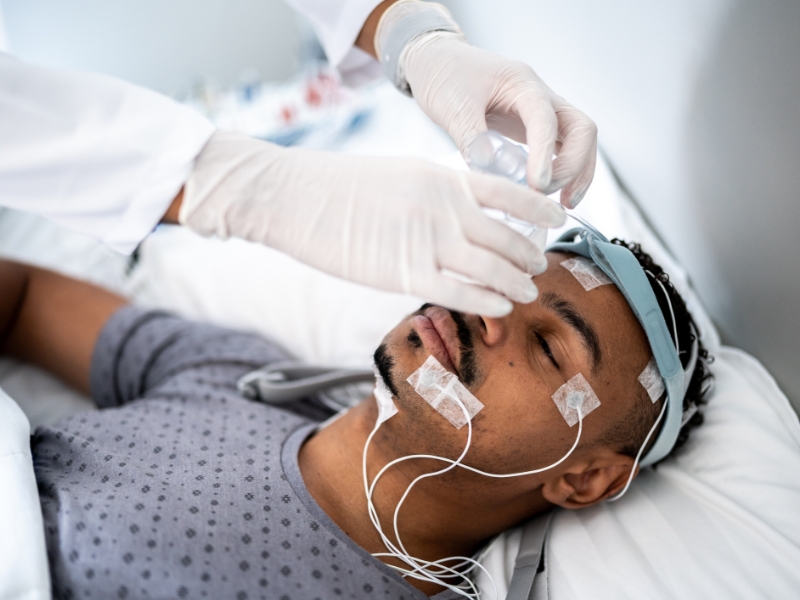
Although just about everyone has experienced first-hand how restorative sleep can be, humanity has been wondering for thousands of years now why we spend around a third of our lives sleeping. From an evolutionary biology point of view, the cost of this behavior is actually immense because our ancestors did not just do without the time for looking for food and a partner in these incredible periods of relaxation, they also put themselves at risk of being killed by an enemy while they were sleeping or being eaten by wild animals.
Sleep as a multifunctional tool
So why do we sleep (and still accept some of these costs today)? “Sleep is like a Swiss pocket knife – it has more than just one function,” explains Antoine Adamantidis, Director of the Experimental Neurology Center at University Hospital Bern. Today, science can draw a much more detailed and precise picture of sleep than was possible just ten years ago. It is becoming increasingly clear that sleep does not just take place in the brain but in fact in the entire body.
About the person
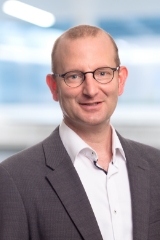
Antoine Adamantidis is a Professor of Neurophysiology Systems at the University of Bern and Director of the Centre for Experimental Neurology at the Neurology Clinic of the Inselspital, University Hospital Bern.
While the brain separates important memories from less important ones during the nightly relaxation phase, sleep is also involved in immunological memory. In other words, it makes sure that our immune system is better prepared when a pathogen that has attacked us before tries to attack us again. Furthermore, sleep influences our metabolism and also plays an important role in diabetes.
Sleep helps after stroke
But that’s not all: Sleep also lowers your blood pressure and thus prevents cardiovascular diseases. Deep sleep in particular appears to have an important function when it comes to strokes/brain seizures. It enables the brain to recover better after a stroke, as proved by the research group headed by Antoine Adamantidis and Claudio Bassetti in a common research project as part of the Interfaculty Research Cooperation (IRC) “Decoding Sleep”.
First interdisciplinary sleep laboratory
Bassetti, Chief Physician at the Department of Neurology at Bern University Hospital and head of the major interdisciplinary project that has just come to an end, looks back on the work with “pride and gratitude”. Sleep research and sleep medicine have a 40-year tradition in Bern which all started in the 1980s with the recording of brain waves as well as eye and respiratory movements. In the 1990s, this collaboration of pneumologists and neurologists resulted in Switzerland’s first interdisciplinary sleep lab.
About the person
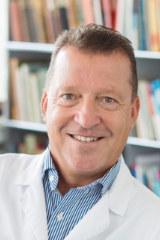
Claudio Bassetti is Professor of Neurology and Clinic Director and Chief Physician of the Neurology Clinic at Inselspital, University Hospital Bern.
Soon, the disciplines of psychiatry and paediatrics got involved. “Over the last 12 years we have invested a lot and gained researchers from even more areas to investigate the mysteries of sleep,” says Bassetti. This resulted not only in the Experimental Neurology Center (ZEN) but also in the NeuroTec lab where sleep researchers work together with engineers to develop new test equipment. The IRC “Decoding Sleep” was able to rely on this wide interdisciplinary base.
Leading global sleep network
“With computer-aided modeling, we have also ventured into new dimensions. And that is how we have secured ourselves a leading position,” explains Bassetti. “And I’m not the only one saying that.” The external assessors that critically reviewed the IRC after it had finished, have confirmed that the sleep network formed by researchers and doctors in Bern is “one of the ten or fifteen most important in the world”.
About the person

Leila Tarokh is Head of the Sleep Research Laboratory at the Department of Psychiatry and Psychotherapy, University of Bern.
Leila Tarokh also lists this large, networked expertise as a definite advantage. The neuroscientist from California was a professor at Brown University – and moved to Bern partly because of the “major sleep research community” and stayed. She and her research group at Bern’s University Psychiatry Services (UPD) contributed to the IRC by examining sleep in adolescents with major depressive disorder (MDD).
Sleep problems in depressed adolescents
“Eighty percent of them have sleeping disorders, and sleep and depression influence each other: If you have depression, you tend to sleep badly. And if you sleep badly, the depressive symptoms become worse,” says Tarokh. Together with her team, she measured the brain waves of 35 depressive and 35 healthy adolescents. And discovered that the phases of deep sleep (those with long-wave brain patterns) were on average shorter in depressive adolescents than in healthy ones. “The difference is also clear a year later, when lots of adolescents are feeling better again as the result of psychotherapy,” says Tarokh.
High-tech research for better sleep
“Our site in the Waldau district of town is a bit out of the way, so we really benefited from the joint events where we had the opportunity to get to know new people,” says Tarokh. She also explains that the contact – for example to computer scientists and to experts in animal experiments for example – will be retained even after the IRC has finished. Fred Mast, Professor of Psychology at the University of Bern and co-lead of the research consortium “Decoding Sleep”, also sees this ongoing lively exchange and the “structures created over the last few years” as its ongoing legacy.
About the person
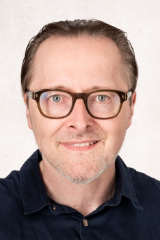
Fred Mast is Professor of Psychology and Head of the Department of Cognitive Psychology, Perception and Research Methods at the University of Bern.
Mast sees these structures, on the one hand, as being newly developed research instruments, such as the bed mounted on a hydraulic platform that can move backward and forward in all directions like a high-tech cradle in his group’s laboratory. “We use it to investigate whether calming movements have an effect on sleep architecture – and perhaps even prolong deep sleep,” says Mast.
Swiss Sleep House Bern for everyone
On the other hand, Mast also sees structures as being newly set up organizational units, referring to the “Swiss Sleep House Bern” opened at the end of 2022. It is connected with the University Clinic for Neurology at Bern University Hospital although its offering is not only aimed at patients but at the whole population.
Sleeping problems are a widespread disease
Sleeping problems have become a widespread disease in the western world. They are often accompanied by considerable suffering and correspondingly high economic costs. “In Switzerland, there are more than two million people who have trouble sleeping,” says Bassetti. “And most of these are not being treated at all or not receiving the correct treatment. We want to be able to reach these people better.”
Swiss Sleep House
The Swiss Sleep House is a clinic for patients to receive answers and help on any sleep related question like insomnia, sleep apnea, snorring and much more. The Swiss Sleep House also advises companies on how to deal with several challenges related to sleep problems of their employees due to shift work, for example.
The Sleep House is a point of contact and a triage station. The interdisciplinary team uses a free sleep check on site to clarify who is affected by what kind of sleeping disorder. If necessary, the team can initiate what is called cognitive behavioral therapy which tries to find a way to sleep better by making individually tailored adjustments to a person’s everyday life. And these adjustments usually show better results than those of the sleeping pills prescribed too often by doctors.
Artificial intelligence in sleep research
This is how the fruits of the IRC get out into the world. But naturally the research efforts are continuing. For example, the research groups led by Antoine Adamantidis, Carolina Gutierrez Herrera, Markus Schmidt and Athina Tzovara have recently been awarded development funds of CHF 2.5 million by the Swiss National Science Foundation (SNSF). In their new project, they would like to develop software which can predict how well different active substances would be suited as sleeping tablets based on the activity of brain cells in sleep.
Improving sleeping tablets
“Today, sleeping tablets basically just trip a switch and knock us out,” says neurologist Adamantidis. But a sedated brain does not work the miracles a brain in deep sleep does. “We are looking for substances that will help people go to sleep but, if at all possible, without negatively affecting deep sleep,” he continues. In that respect, the project is a typical result of the IRC as it benefits from the synergies between experimental researchers and specialists from computer science.
About the person
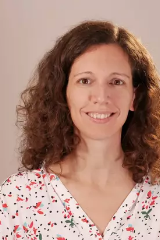
Athina Tzovara is an assistant professor at the Institute of Computer Science of the University of Bern and at the Department of Neurology at Inselspital, University Hospital Bern.
Future perspectives of sleep research
For example, specialists such as Athina Tzovara. The young professor at the Institute of Computer Science at the University of Bern is an expert for AI applications in neurosciences. She trained as an electrical and computer engineer in Greece – but then turned to neuroscience for her doctorate. She sees this cross-disciplinary approach as having “greater potential for creating new knowledge”. Just like her colleagues, she remains highly motivated “to go beyond the narrow confines of existing fields of expertise” to elicit many more secrets from the fascinating world of sleep.
Interfaculty Research Cooperation «Decoding Sleep»
Subscribe to the uniAKTUELL newsletter

Discover stories about the research at the University of Bern and the people behind it.